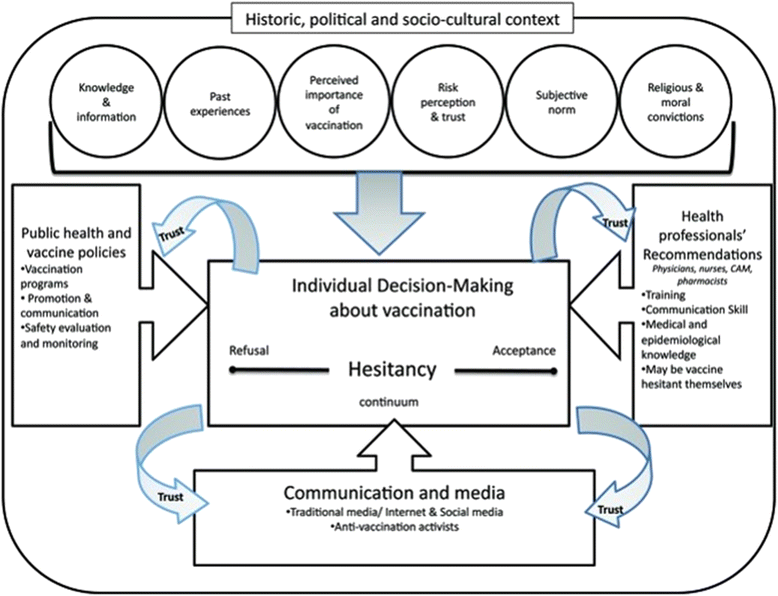A qualitative evaluation to explore the suitability, feasibility and acceptability of using a 'celebration card' intervention in primary care to improve the uptake of childhood vaccinations
- PMID: 27475527
- PMCID: PMC4967527
- DOI: 10.1186/s12875-016-0497-9
A qualitative evaluation to explore the suitability, feasibility and acceptability of using a 'celebration card' intervention in primary care to improve the uptake of childhood vaccinations
Abstract
Background: Childhood vaccination remains a primary mechanism for reducing the burden of infectious disease. In the United Kingdom, as in many countries, a sustained effort is required to ensure that vaccination targets are met to afford protection to the whole population from vaccine preventable disease. The Celebrate and Protect programme is a collaborative partnership developed to improve the uptake of childhood vaccination across a number of boroughs within London through the use of a celebration card to encourage attendance for vaccination and enhance relationships between general practices and the parents/carers of children.
Methods: This study was undertaken to assess the suitability, feasibility and acceptability of the Celebrate and Protect programme across nine boroughs in London. Data were collected either from telephone interviews (n = 24) or from focus groups (n = 31). A total of 55 key informants were included in the study, representing strategic, commissioning or policy leads, healthcare professionals and primary care teams delivering vaccinations and parents/carers of children under five.
Results: The analysis of data identified that whilst parents/carers saw the celebration card positively this raised the issue of 'vaccine hesitancy' and the lack of information that parents/carers have to make informed decisions about vaccination. Similarly, healthcare professionals viewed the programme positively and felt that it was deliverable within existing resources although they raised wider questions about on-going sustainability and about quantitative data collection. In relation to the collaboration between primary care and a pharmaceutical company in developing the Celebrate and Protect programme, it was generally felt that, provided appropriate governance is in place, it was a pragmatic approach in which the benefits outweighed any perceived disadvantages.
Discussion: The Celebrate and Protect programme was seen as an innovative collaborative programme to engage with parents and carers of children in order to improve relationships between service users and providers and subsequently increase vaccination uptake. The analysis demonstrates that that the celebration card is suitable for its purpose, acceptable to both healthcare professionals and to parents/carers of children and the Celebrate and Protect programme has been able to deliver its aims.
Conclusion: Whilst the delivery of the 'celebration card' intervention in primary met its objectives there are some outstanding issues in terms of the sustainability of the initiative and the ability to demonstrate quantitative improvements in vaccination uptake rates.
Keywords: Communication; Evaluation Studies; Primary Health Care; Social Marketing; Vaccination.
Figures
References
-
- British Medical Association. Childhood immunisation : a guide for healthcare professionals. London: British Medical Association; 2003.
-
- Public Health England . The UK immunisation schedule. In: Salisbury D, Ramsay M, editors. Immun. Against infect. Dis. London: Public Health England; 2013. pp. 79–87.
-
- World Health Organization. Health 21: The health for all policy framework for the WHO European Region. Copenhagen: World Health Organization; 1999. - PubMed
Publication types
MeSH terms
LinkOut - more resources
Full Text Sources
Other Literature Sources
Miscellaneous


